The mess in the sink isn’t just dirty dishes—it’s simmering resentment.

It’s not the big blowups that end most millennial marriages—it’s the petty, nagging, daily grind of who’s taking out the trash and why the dishwasher still isn’t unloaded. Modern couples are stretched thin, working more, parenting harder, and trying to adult without a manual. In that chaos, chores become more than chores. They become tests of respect, fairness, and emotional bandwidth.
Millennials didn’t invent domestic resentment—but they’re drowning in it. These are the household duties quietly unraveling their relationships.
1. The dishes are never just about the dishes.

That crusty casserole dish soaking for the third straight day is now a symbol of disrespect. One person swears they’ll get to it. The other interprets that as lazy, selfish, or just plain oblivious. Doing dishes seems like a simple ask, but it’s rarely about the actual task—it’s about feeling like a team. When one person always cleans while the other scrolls TikTok, the imbalance breeds bitterness. Over time, a sink full of plates becomes emotional shorthand for being taken for granted. The resentment grows quietly until every meal ends with a silent standoff by the faucet.
2. Laundry duty turns into a passive-aggressive power play.
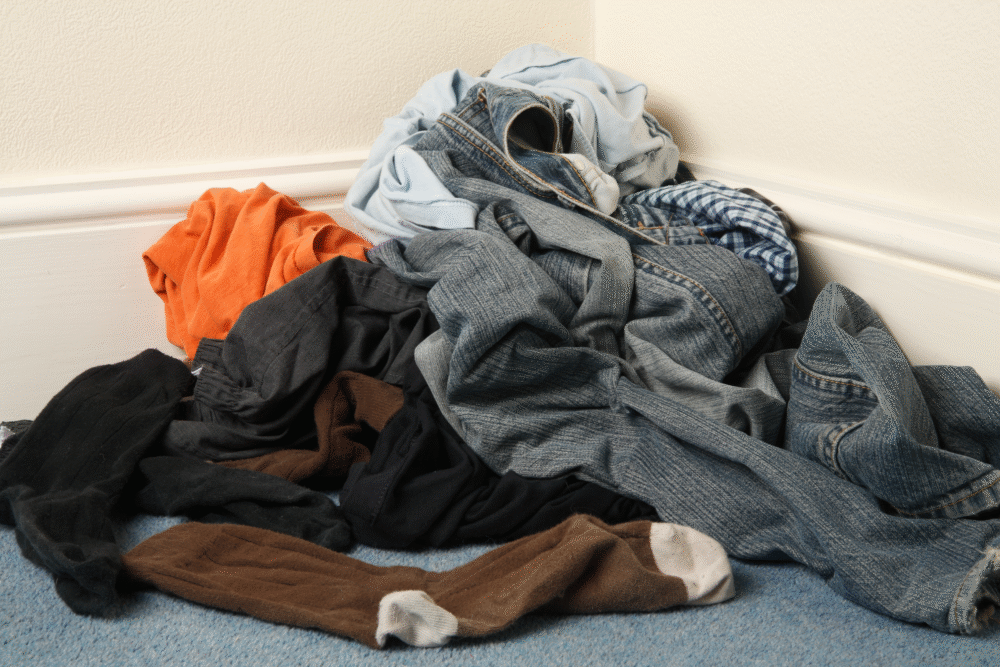
Dirty socks in the hallway. Damp towels left in the machine. That weird unspoken rule where one person does laundry and the other just “forgets.” For many couples, laundry becomes a battleground. It’s not just about cleanliness—it’s about invisible labor. Who’s noticing what needs doing? Who’s folding? Who’s pretending not to see the mountain of clothes? When only one partner shoulders the routine without acknowledgment, it starts to feel like unpaid servitude. And those tiny digs—folding clothes wrong or leaving them in piles—aren’t innocent. They become quiet protests that pile up like mismatched socks in the corner.
3. Cooking every night becomes a quiet source of burnout.

One partner starts out loving the role of household chef. They’re chopping onions, plating with flair, even experimenting with homemade sauces. But eventually, joy turns into obligation. If the other person never plans, shops, or even thanks them, cooking becomes a chore they didn’t sign up to own. When meals are expected—not appreciated—the dynamic shifts. The kitchen becomes a place of simmering frustration instead of connection. Sharing meals should bring people together, not make one person feel like the unpaid caterer. Couples stop talking about it until takeout becomes their default emotional ceasefire.
4. Vacuuming and sweeping trigger status standoffs.

Clean floors feel good—until someone starts policing crumbs like they’re signs of moral decay. One partner vacuums compulsively, the other doesn’t see the need. Suddenly, it’s not about tidiness. It’s about values. Who cares more? Who’s “clean enough”? These arguments spiral into judgments about character: lazy versus obsessive, relaxed versus passive-aggressive. The person doing all the work feels unseen. The one being nagged feels micromanaged. Nobody wins, and everybody ends up stepping on eggshells—or crushed cereal. It’s not about the rug. It’s about the power struggle hiding underneath it.
5. Bathroom messes chip away at intimacy.
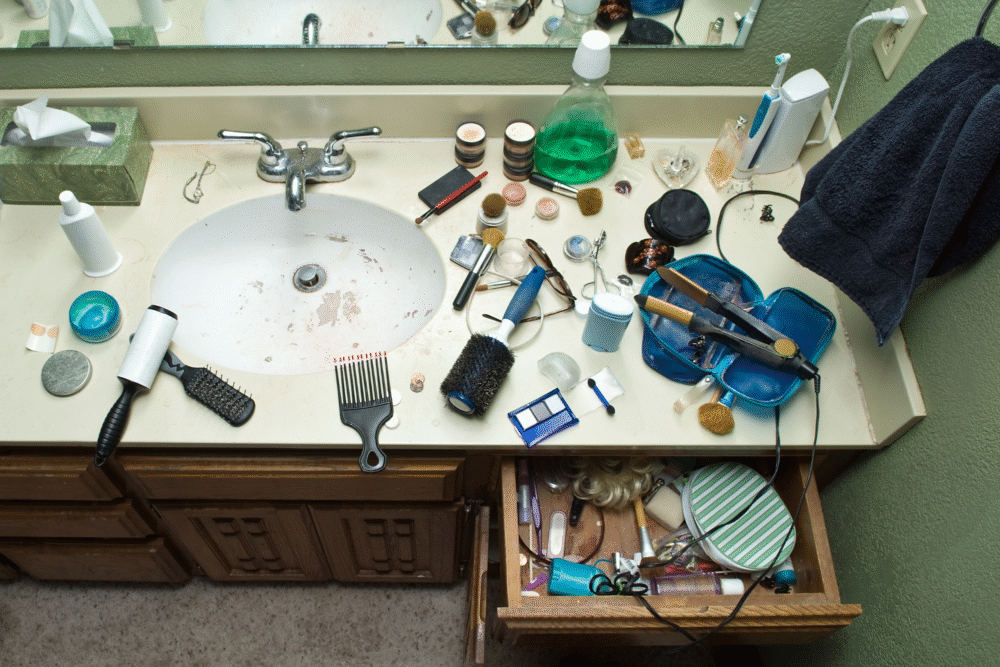
Nothing kills romance like toothpaste blobs and hair in the drain. When one partner treats the bathroom like a gas station stall, the other starts mentally checking out. It’s not just gross—it’s demeaning. Picking up someone’s used floss every morning doesn’t inspire affection. Over time, this imbalance affects how partners see each other. Resentment builds when one person feels like the other’s maid instead of their equal. Small hygiene-related chores become silent battles, and every ignored wet towel starts to feel like a middle finger. Cleanliness isn’t just about health—it’s about respect.
6. Garbage duty breeds quiet contempt.
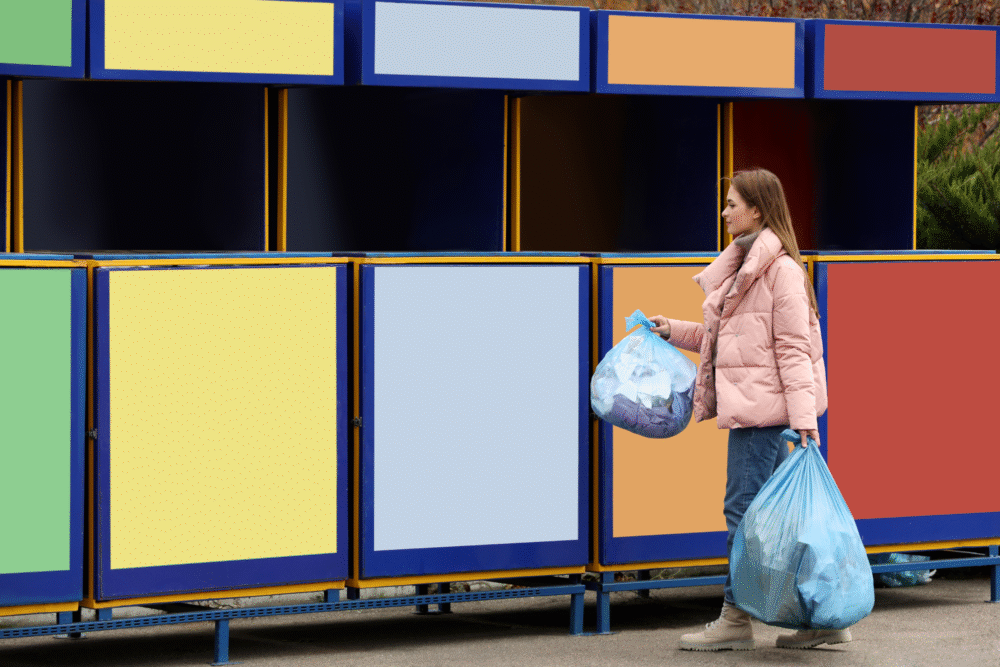
Trash is the chore no one wants, so it usually falls to the one who finally caves. And that caving becomes a pattern. One person always “forgets.” The other always handles it. It’s never just about taking the bag out—it’s about emotional labor. The partner who always notices, ties, and drags it out in the rain feels like they’re parenting, not partnering. And the smell? It’s just the icing on the resentment cake. Garbage is mundane, but neglecting it sends a message: I don’t care enough to deal with this. Over time, that message gets loud.
7. Scheduling cleaners becomes a low-grade war.

You’d think outsourcing would solve the tension. But instead, hiring a cleaner becomes its own minefield. Who schedules it? Who pre-cleans so the cleaner doesn’t judge? Who tips? One partner may feel it’s an extravagance. The other sees it as survival. If there’s disagreement about when or how often, the whole arrangement becomes loaded with guilt and judgment. Some people resent paying someone else to do what they think their spouse should handle. Others resent having to argue about outsourcing basic upkeep. In the end, it’s not about the cleaner—it’s about clashing expectations and unresolved tension.
8. “I’ll do it later” becomes a form of gaslighting.

Nothing derails a chore conversation like the eternal promise of “later.” It sounds innocent, but it’s often a delay tactic that leaves the other person stewing. Later becomes tomorrow, which becomes next week, which becomes never. One partner ends up doing it out of frustration, then resents that they caved. The other claims they were going to do it—eventually. This dynamic becomes a cycle of unmet expectations and emotional manipulation. It’s exhausting to keep asking. It’s demoralizing to keep doing. And soon, “later” becomes the most dishonest word in the relationship.
9. Clutter turns into a personality clash.
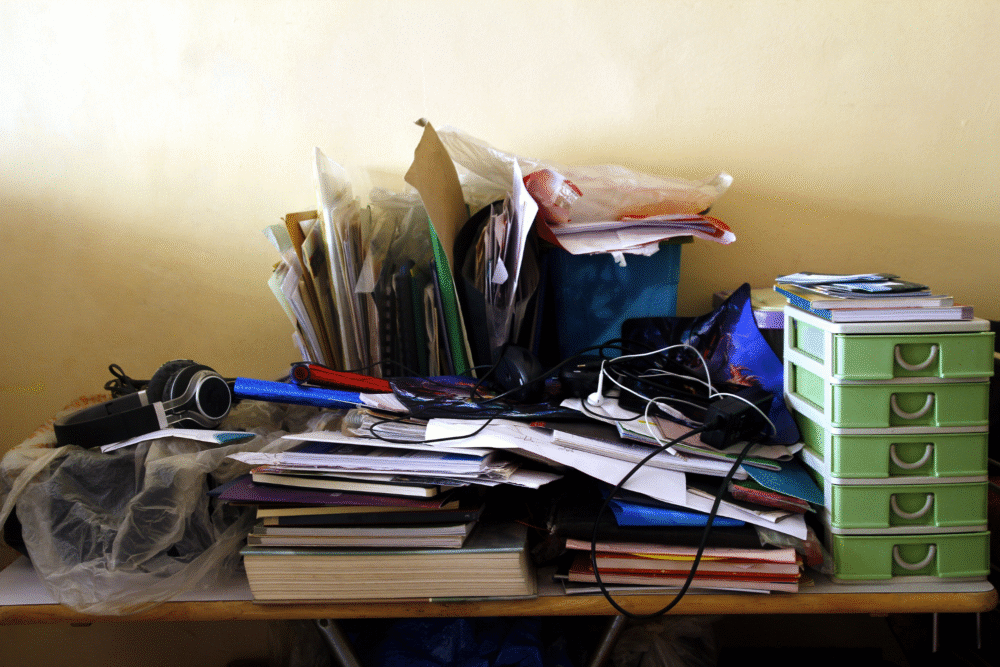
What one person sees as “creative chaos,” the other sees as visual warfare. The pile of books, the desk covered in cords, the “catch-all” table that’s now a landfill—it all sparks conflict. Decluttering isn’t just an aesthetic choice. It’s about peace of mind, control, and shared space. When only one partner notices or cares, the burden of tidiness becomes psychological. The clutter-averse partner starts to feel overwhelmed and disrespected. The clutter-tolerant partner feels policed. It’s not about being neat or messy—it’s about mutual consideration, and when that breaks, so does the atmosphere of the home.
10. Who handles the grocery shopping becomes a secret grudge.

On paper, grocery shopping sounds simple. But in practice, it’s emotionally loaded. Who plans meals? Who makes the list? Who forgets the one thing that always matters? When one partner consistently bears the mental and physical burden, shopping becomes another unappreciated task on an endless loop. Even when it’s shared, the quality of effort varies. Some treat it like a tactical mission. Others wander and forget half the list. Over time, resentment grows not just over who shops, but how. It’s not just about apples—it’s about attention, effort, and being on the same team.
11. Folding towels becomes a symbol of control.

Yes, towels. Some fold them in thirds. Others in halves. Some don’t fold them at all. What starts as a benign difference quickly becomes a referendum on effort, intelligence, and attention to detail. One partner starts refolding everything. The other gets annoyed they’re being corrected. Before long, the towels aren’t just linens—they’re a battleground. This seemingly small disagreement hides a deeper divide: control versus ease, pride versus pragmatism. When these debates go unresolved, they often bleed into other parts of the relationship. The bathroom shelf becomes a stand-in for trust and compatibility.
12. Who cleans the fridge becomes a test of emotional labor.
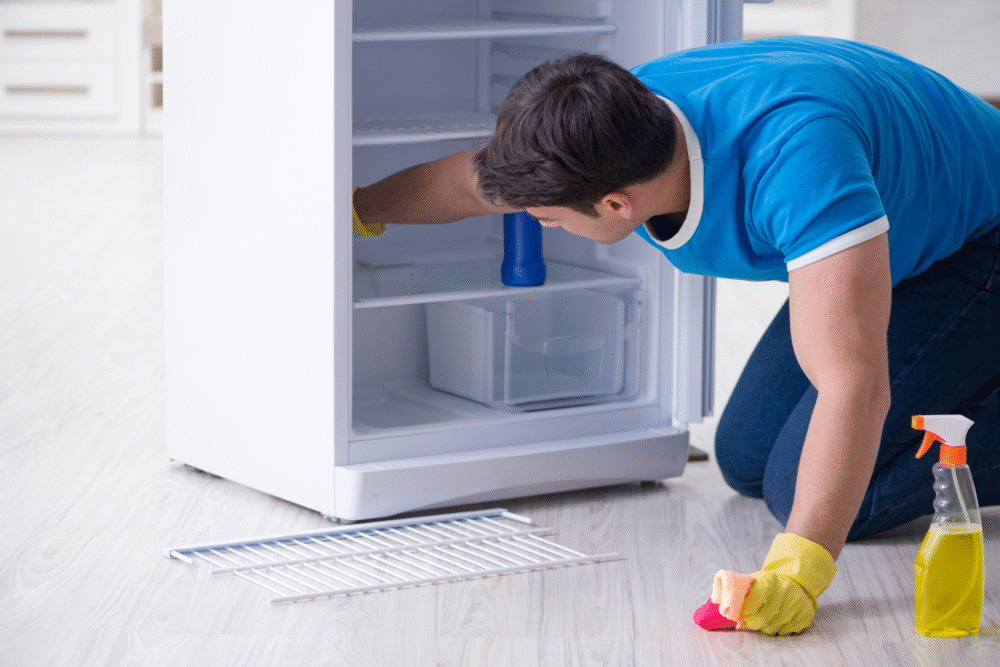
Cleaning out the fridge is no one’s favorite chore—but someone always does it. Moldy leftovers, leaky jars, mystery containers—there’s an emotional and sensory tax. When one partner always handles the cleanouts, it feels like a thankless job in the trenches. Meanwhile, the other gets blamed for blind spots and expired cheese. The dynamic isn’t just about hygiene—it’s about attention, planning, and responsibility. The fridge becomes a literal and metaphorical cold war. As food decays, so does the emotional balance. Cleaning it out becomes less about cleanliness and more about accountability. And that stinks—literally and figuratively.
